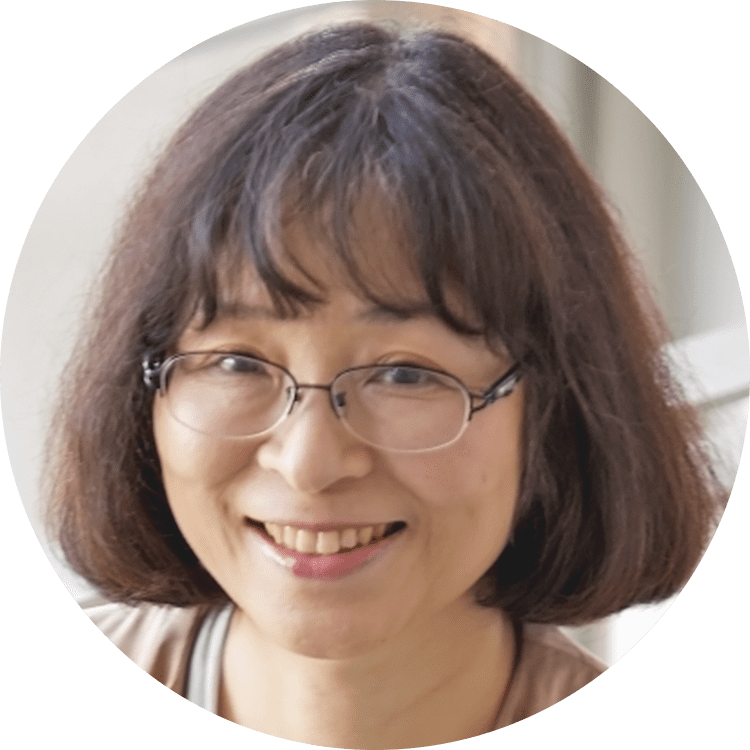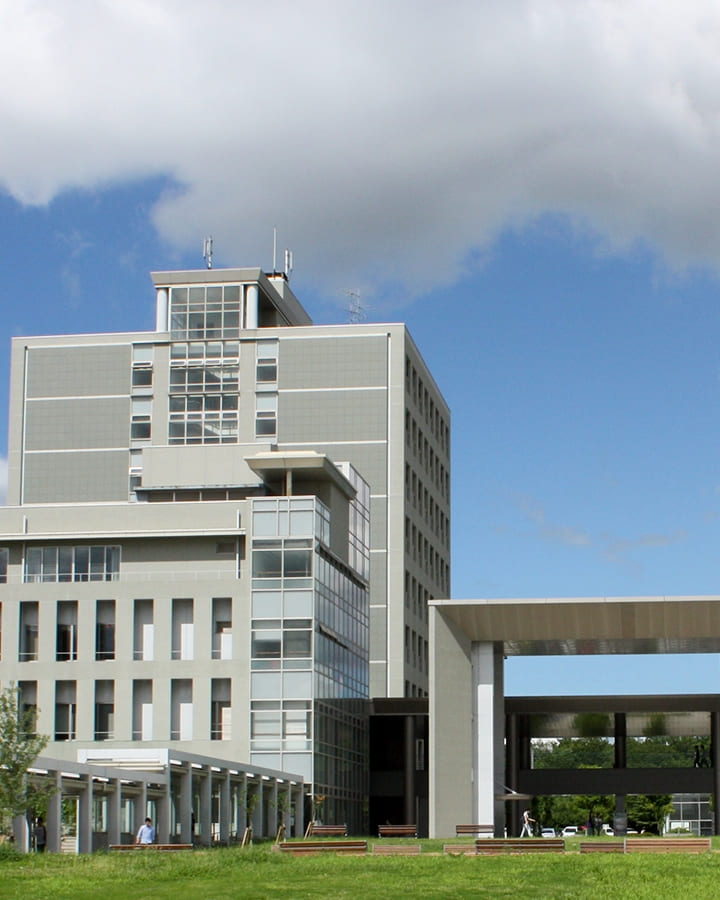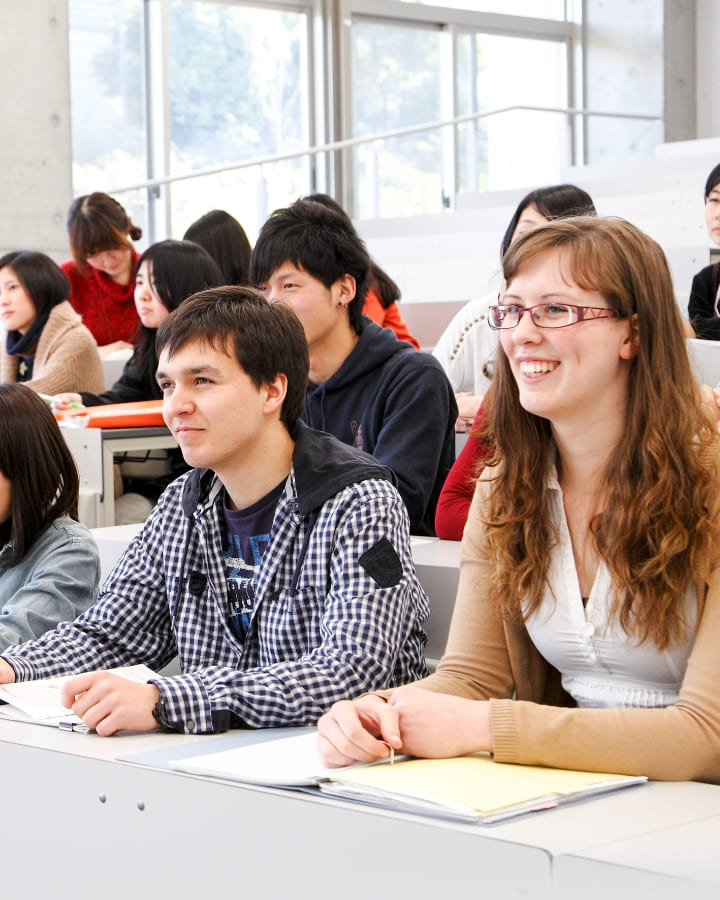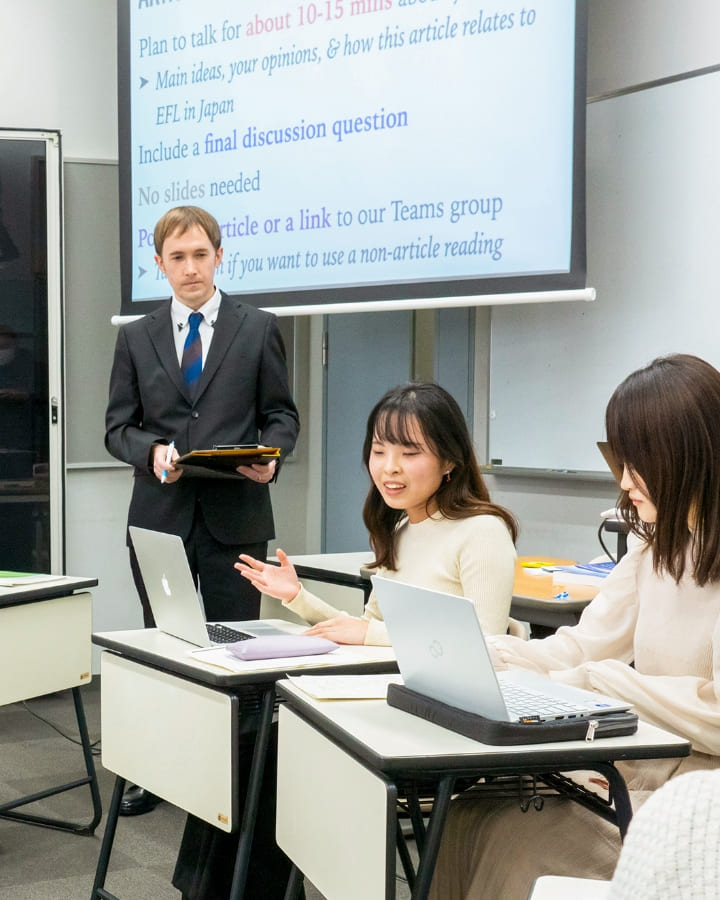
A department that integrates education & welfare
for the "bright future of children" and "a society that values human beings"
The faculty consists of two departments: the Department of Educational Development and the Department of Social Welfare. In addition to subjects common to all departments, each department offers a systematic curriculum to nurture intellectual pursuits in childcare, education, and social welfare and to enable students to acquire the knowledge and skills necessary for professionals in these fields. In today's society, work in education & welfare is becoming increasingly important for people to build a rich and happy life. The small class size of our faculty allows students to receive specialized guidance and attention regarding their individual career paths, and through four years of rigorous yet enjoyable study, students will be able to grow together toward reaching their goals.

Shuichiro Inashima
Greetings from the Dean
The School of Education and Social Welfare fosters professional competence to ensure the dignity and rich development of the human person.
Today's society faces diverse challenges in the fields of education and social welfare to support children and families with special needs and people with difficulties in life, related to disabilities, poverty, different cultures, isolation, and so on. The Faculty will strive to enhance education and research so that students can learn from the community in cooperation with other faculties as well as with education and social welfare, and develop professional competence to comprehensively view these issues from a global perspective and solve them in cooperation with other people.
Department of Educational & Developmental Science
Aiming to become elementary school teachers, kindergarten teachers, and nursery school teachers who can deal with contemporary issues of children.

The Department of Education & Development features specialized education and research in the "science of dealing with children's developmental crises" and has established the Elementary Education Course and the Childcare and Early Childhood Education Course. The Department of Education & Childcare offers a curriculum that is unique to Aichi Prefectural University, a medium-sized public university.
In addition to acquiring the basic skills required of teachers at elementary schools, kindergartens, and nursery schools, the curriculum also includes classes from other faculties and departments, with the aim of providing future teachers with a welfare perspective and an international outlook.
Department of Welfare Science
Analytical and communication skills to understand society and people, and practical skills to lead to solutions to problems.

Social welfare is a comprehensive science based on the humanities and social sciences. Therefore, the Department of Social Welfare at our university provides students with sociology and psychology as basic theories and practices to understand society and human beings, and on the basis of these theories and practices, students can systematically learn social welfare studies.
Social welfare issues have been diversifying in recent years, including support not only for abused children, low-income elderly people, and disabled people who need constant assistance, but also for foreign residents in unstable employment, withdrawn youth, and middle-aged and older people who have been forced to leave their jobs to take care of their family members.
In order to become specialists who can help solve these diversified problems, students learn social work theories and methods necessary for everything from personal assistance to policy making and practical activities.We aim to develop human resources who can provide comprehensive and integrated assistance to users of welfare services so that they can lead independent lives with dignity according to their individuality and abilities, and who can work to promote community welfare by understanding local welfare issues and coordinating and developing social resources.





